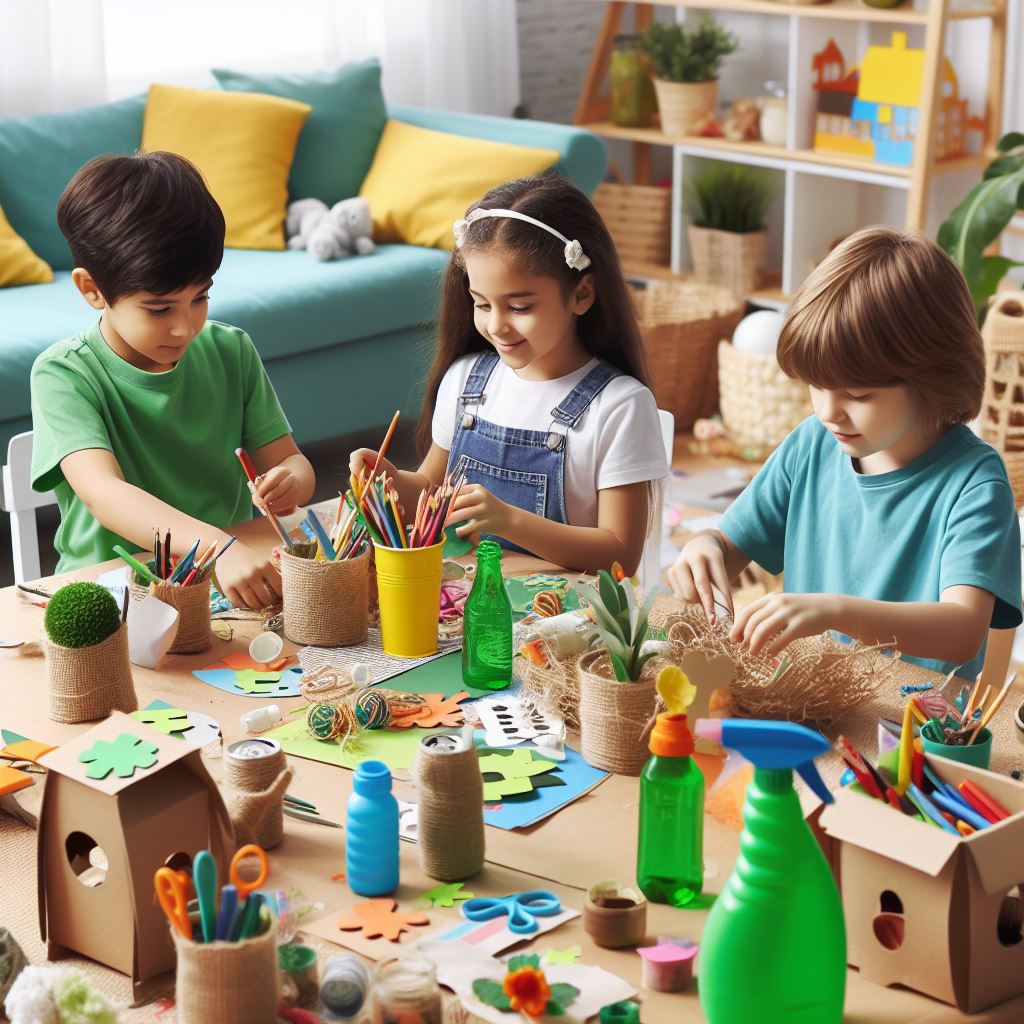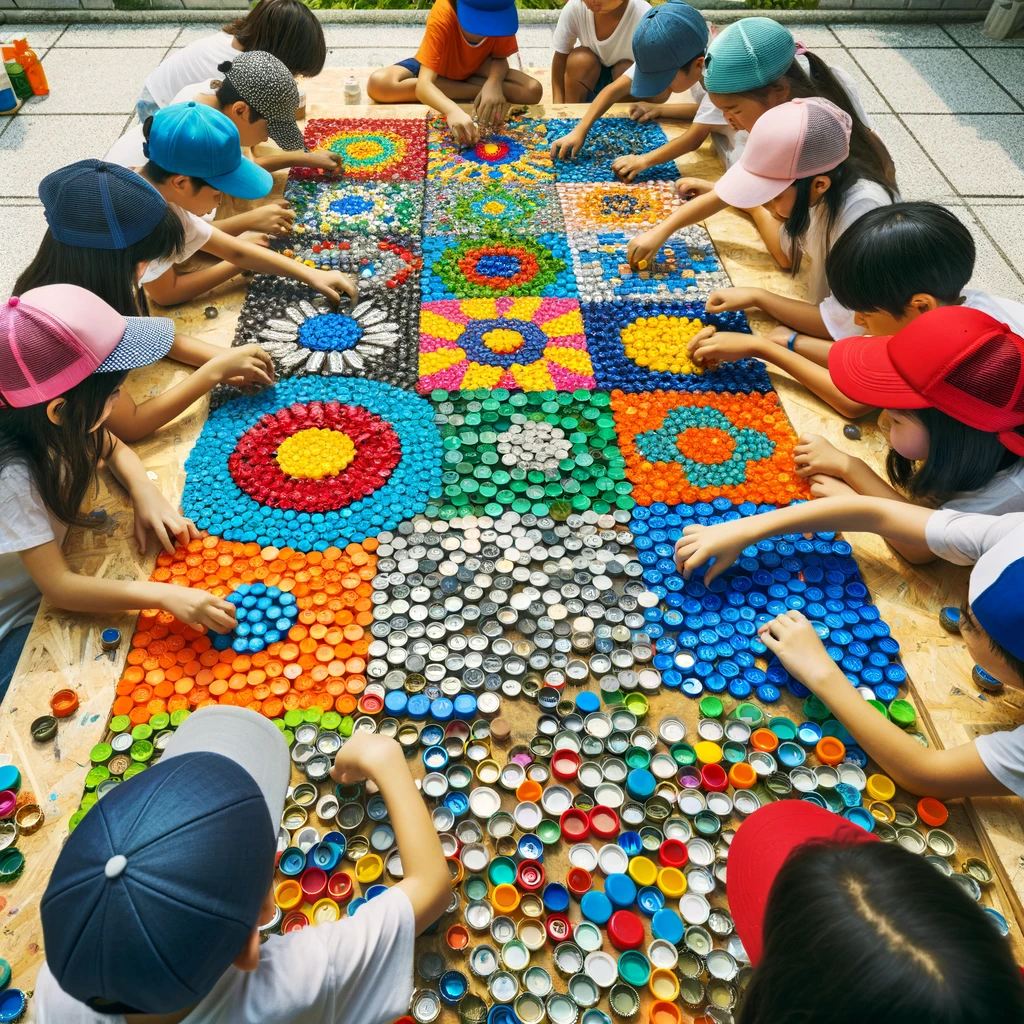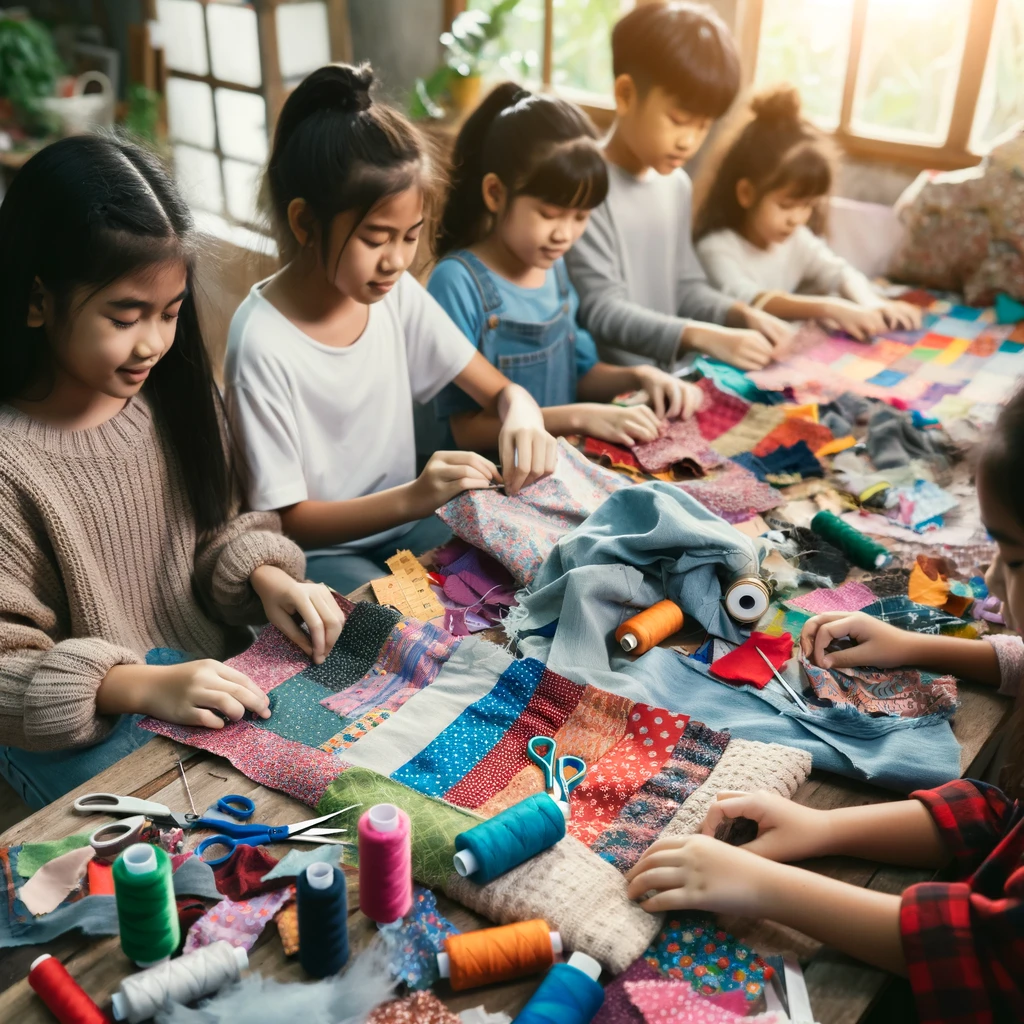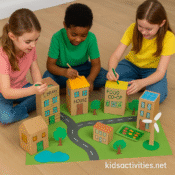
Crafting a Greener Future: Engaging Children with Recycled Material Crafts
In a world increasingly focused on sustainability and environmental responsibility, teaching children the value of recycling through creative means is both necessary and rewarding. Crafting with recycled materials not only fosters creativity and innovation among young minds but also instills a deep-seated respect for the environment. This activity not only serves as a fun and educational experience but also as a crucial lesson in sustainability.
The Importance of Recycling
Environmental Impact
Discuss the significance of recycling in waste management and its effects on conserving natural resources, reducing landfill use, and lowering pollution levels.
Educational Value
Explain how recycling crafts can be a hands-on way to teach children about the environment, resourcefulness, and the impact of human activities on the planet.
Planning the Crafting Session
Gathering Materials
Provide tips on collecting a variety of recyclable materials like paper, plastic bottles, cardboard, fabric scraps, and metal cans, turning the collection process into an exploratory and learning activity.
Setting Up the Workspace
Advice on organizing a safe and accessible crafting area that encourages creativity and minimizes waste and mess.
Craft Ideas Using Recycled Materials
Paper and Cardboard Crafts
- Cardboard City: Create buildings, roads, and landscapes from cardboard boxes and tubes.
- Paper Mache Art: Use old newspapers and glue to sculpt various shapes and figures.
Plastic and Metal Creations

- Bottle Cap Mosaics: Design colorful mosaics using plastic or metal bottle caps.
- Plastic Bottle Planters: Transform plastic bottles into decorative planters for small plants or herbs.
Fabric and Textile Projects

- T-shirt Tote Bags: Convert old t-shirts into handy tote bags without sewing.
- Fabric Scrap Quilts: Piece together fabric scraps to make colorful quilts or wall hangings.
Educational Outcomes
Creativity and Innovation
Discuss how crafting with recycled materials encourages children to think outside the box and develop unique solutions to design challenges.
Environmental Awareness
Highlight how these activities teach children about the lifecycle of products and the importance of reducing waste and repurposing materials.
Skills Development
Explain the range of skills children can develop through recycled material crafts, including fine motor skills, planning and execution, and problem-solving.
Engaging the Community
School and Community Programs
Suggest ways schools and community centers can incorporate recycled material crafting into their programs to broaden the impact and raise awareness.
Family Involvement
Encourage families to participate in recycled crafting at home, creating a shared experience and reinforcing the lessons learned.
Did they gain anything from it?
Crafting with recycled materials is more than just a fun activity; it’s a meaningful way to engage children with the principles of sustainability and environmental stewardship. By encouraging creativity and innovation while teaching important ecological lessons, these activities lay the groundwork for a more conscious and responsible generation, poised to make a positive impact on the world.





[…] Crafting a Greener Future: Engaging Children with Recycled Material Crafts […]
[…] benefits span across physical, emotional, social, cognitive, and environmental domains, providing a comprehensive developmental experience for […]
[…] become the “recycling scout” of the house—spotting treasure in everyday items. Encouraging kids to create crafts using recycled materials is a good way to promote recycling to the […]
[…] make lower sounds. Tighter bands vibrate faster. Kids can tune or strum to change pitch. Navigate here to see more recycled material […]
[…] the kids to create working prototypes with everyday objects. This could include crafting board games, inventing new tools from classroom toys, or building […]